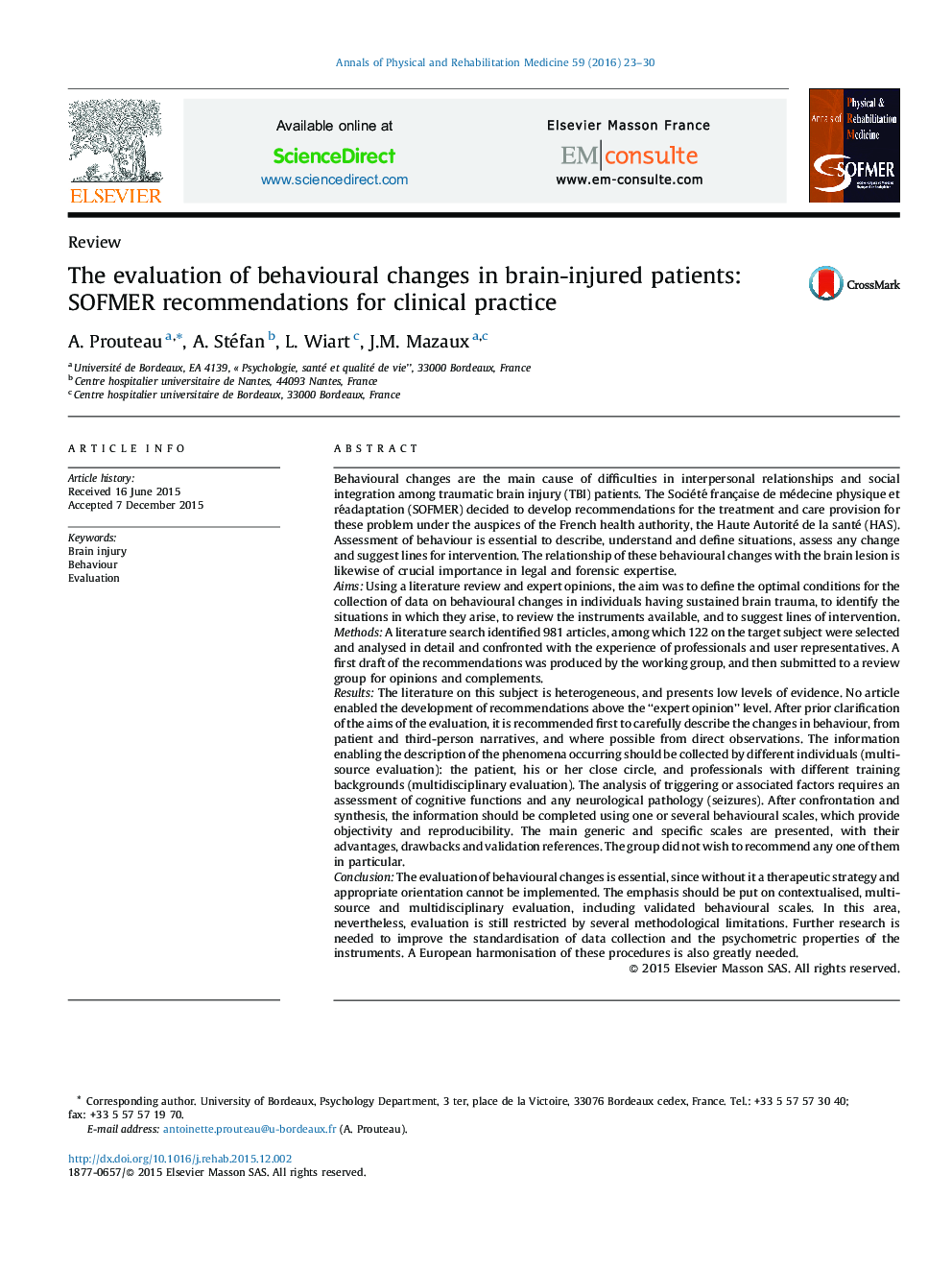| کد مقاله | کد نشریه | سال انتشار | مقاله انگلیسی | نسخه تمام متن |
|---|---|---|---|---|
| 4040480 | 1603295 | 2016 | 8 صفحه PDF | دانلود رایگان |

Behavioural changes are the main cause of difficulties in interpersonal relationships and social integration among traumatic brain injury (TBI) patients. The Société française de médecine physique et réadaptation (SOFMER) decided to develop recommendations for the treatment and care provision for these problem under the auspices of the French health authority, the Haute Autorité de la santé (HAS). Assessment of behaviour is essential to describe, understand and define situations, assess any change and suggest lines for intervention. The relationship of these behavioural changes with the brain lesion is likewise of crucial importance in legal and forensic expertise.AimsUsing a literature review and expert opinions, the aim was to define the optimal conditions for the collection of data on behavioural changes in individuals having sustained brain trauma, to identify the situations in which they arise, to review the instruments available, and to suggest lines of intervention.MethodsA literature search identified 981 articles, among which 122 on the target subject were selected and analysed in detail and confronted with the experience of professionals and user representatives. A first draft of the recommendations was produced by the working group, and then submitted to a review group for opinions and complements.ResultsThe literature on this subject is heterogeneous, and presents low levels of evidence. No article enabled the development of recommendations above the “expert opinion” level. After prior clarification of the aims of the evaluation, it is recommended first to carefully describe the changes in behaviour, from patient and third-person narratives, and where possible from direct observations. The information enabling the description of the phenomena occurring should be collected by different individuals (multi-source evaluation): the patient, his or her close circle, and professionals with different training backgrounds (multidisciplinary evaluation). The analysis of triggering or associated factors requires an assessment of cognitive functions and any neurological pathology (seizures). After confrontation and synthesis, the information should be completed using one or several behavioural scales, which provide objectivity and reproducibility. The main generic and specific scales are presented, with their advantages, drawbacks and validation references. The group did not wish to recommend any one of them in particular.ConclusionThe evaluation of behavioural changes is essential, since without it a therapeutic strategy and appropriate orientation cannot be implemented. The emphasis should be put on contextualised, multi-source and multidisciplinary evaluation, including validated behavioural scales. In this area, nevertheless, evaluation is still restricted by several methodological limitations. Further research is needed to improve the standardisation of data collection and the psychometric properties of the instruments. A European harmonisation of these procedures is also greatly needed.
Journal: Annals of Physical and Rehabilitation Medicine - Volume 59, Issue 1, February 2016, Pages 23–30